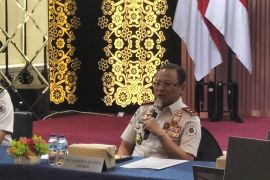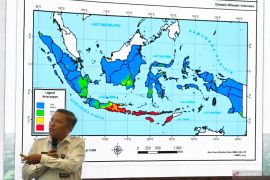"The program to scientize jamu was started last year. The goal is to support the popular belief in their healing properties with scientific evidence," Sri Indrawati, director general of pharmaceutics and healthcare instruments management at the Health Ministry. said here Friday.
Under the program, the ministry was collecting relevant data on all existing medicinal herbs in Indonesia.
She said there were now 12 hospitals and 62 community health centers in Java island that were participating in the jamu scientizing program.
"Among the provinces already engaged in this activity are Central Java and East Java. At present, approximately 62 community health centers and 12 hospitals are actively working to sienntize jamu," Sri said.
However, asked how many kinds of jamu had already been scientized, Sri said she did not know the exact number.
"As to the number, I do not know, because the exact data on herbs already scientized is with the Health Research and Development Agency," she said.
After being scientized, herbal medicine was expected to be integrated with conventional medication, Sri said.
"The scientization of medicinal herbs is of great potential benefit because the raw materials to make jamu do not need to be imported as in the case of conventional drugs," Sri said.
Meanwhile, Health Minister Endang Rahayu Sedianingsih said, the scientization of medicinal herbs was an effort to confirm or verify their medical benefit through health services-based research.
"The goal is to provide a scientific basis for the empirical use of medicinal herbs through health services-based research," Endang said.
In addition, the scientization effort was expected to lead to an increase in the provision of safe, effective and scientifically tested jamu and its wider use in self-medication as well as at public healthcare facilities.(*)
Editor: Aditia Maruli Radja
Copyright © ANTARA 2011











